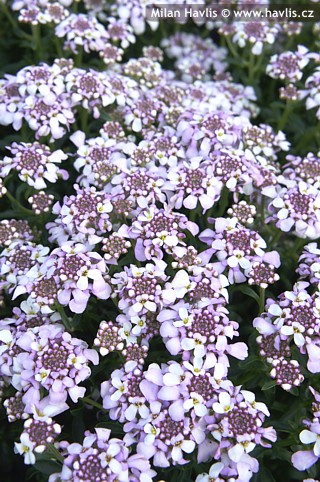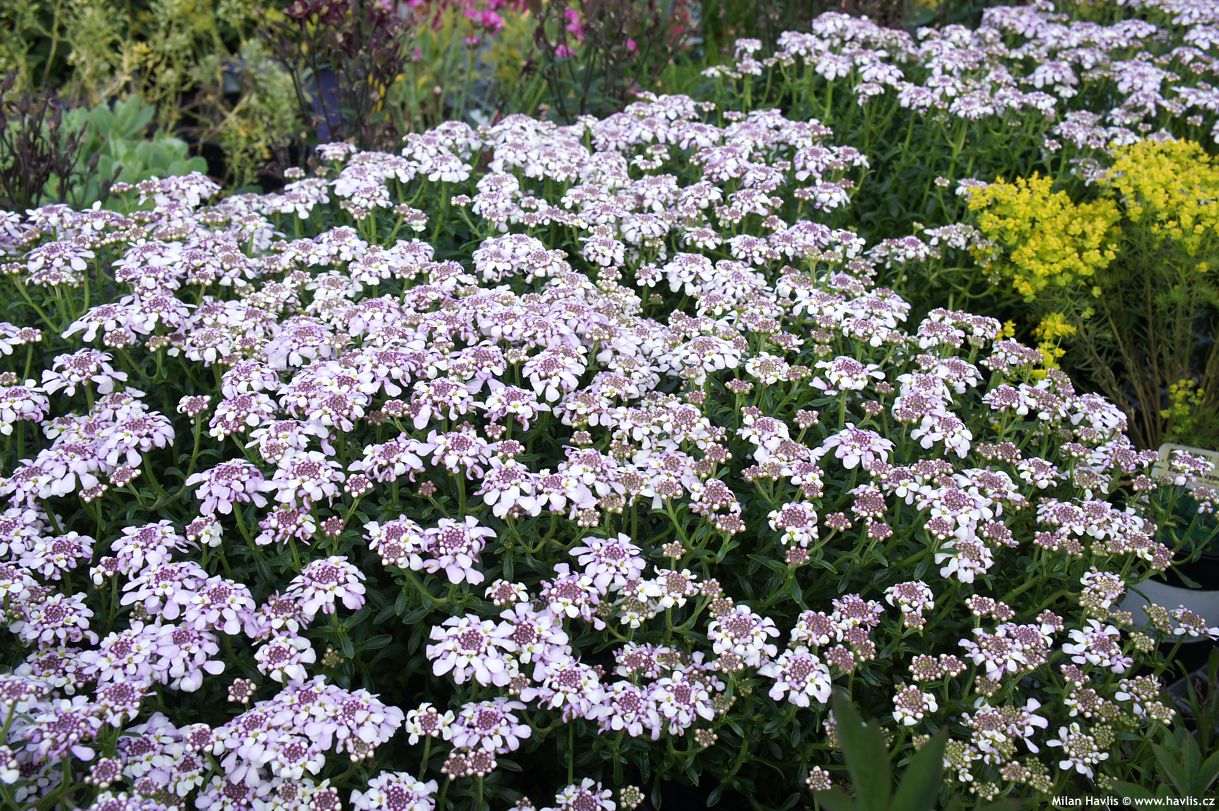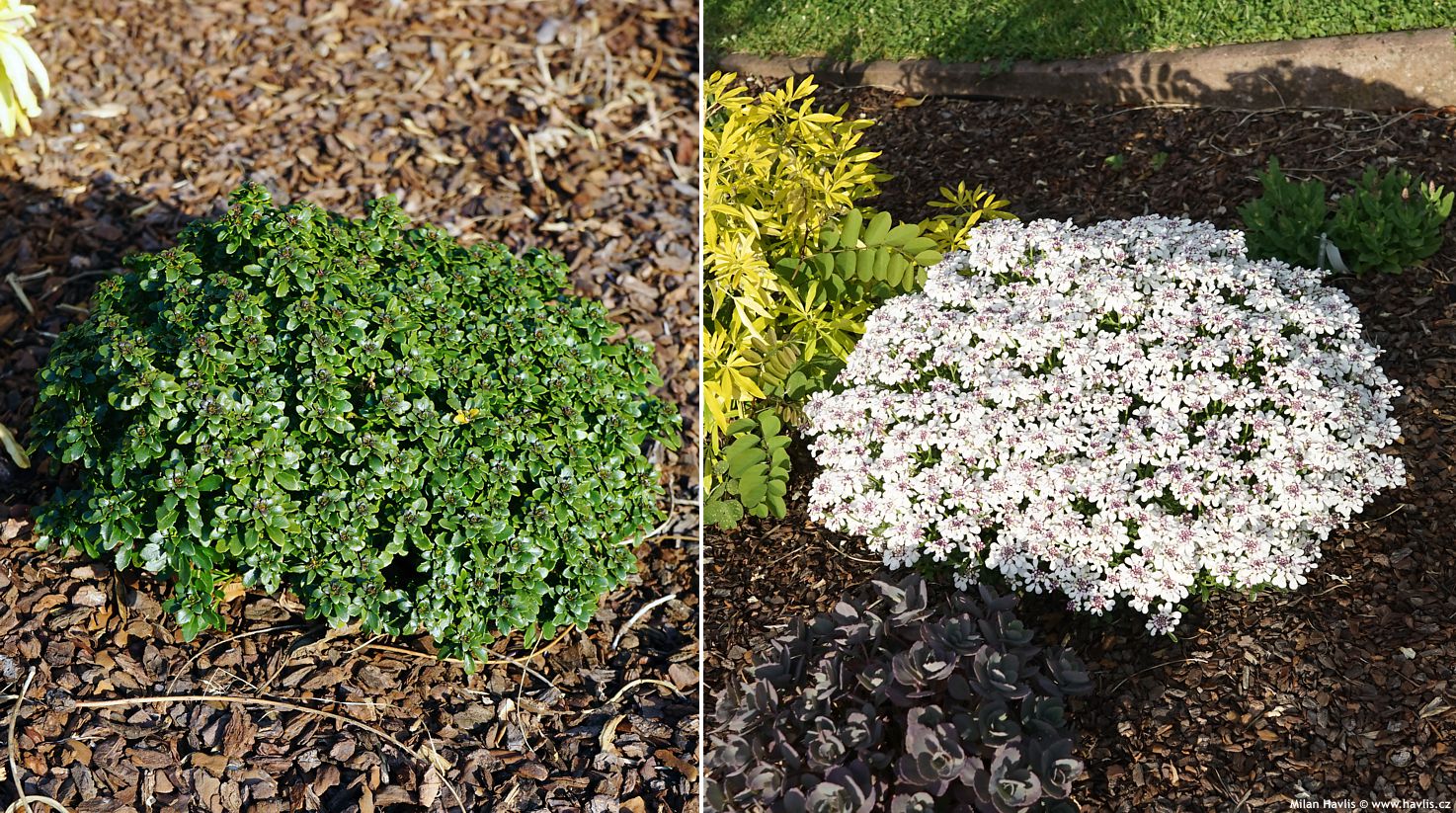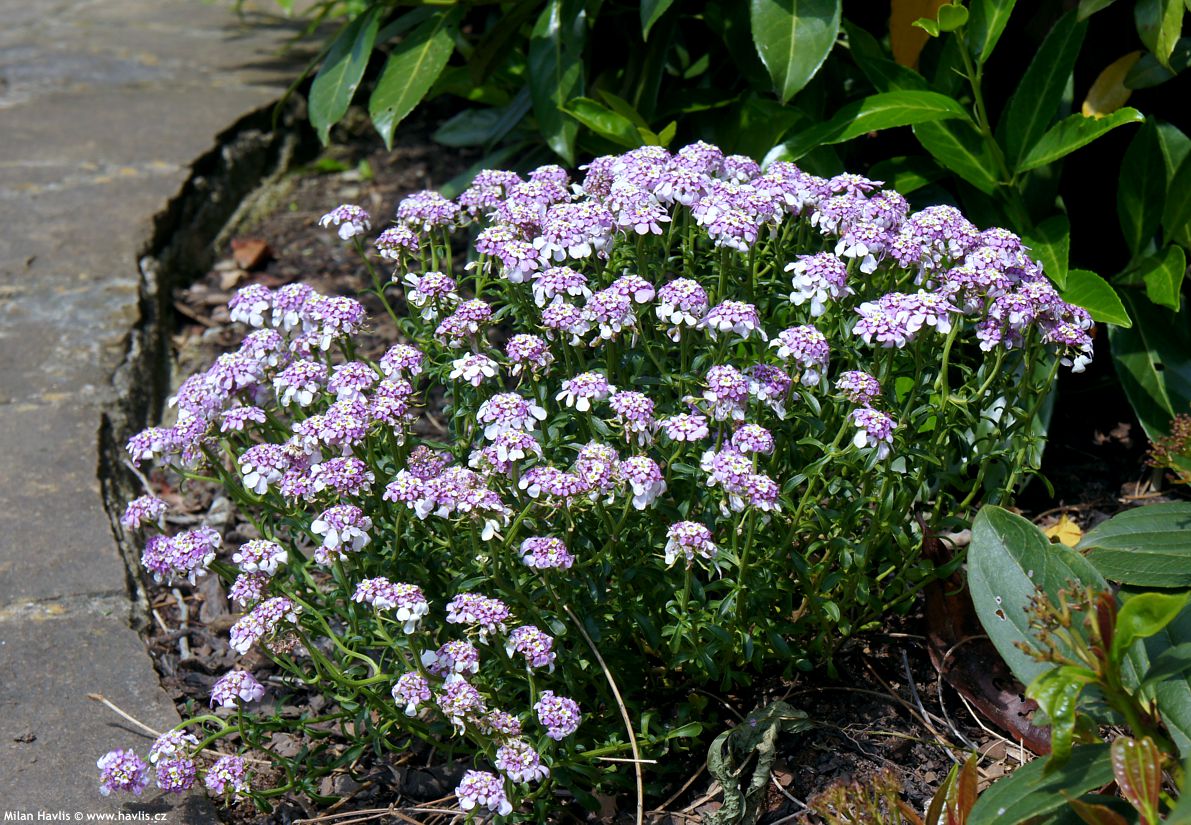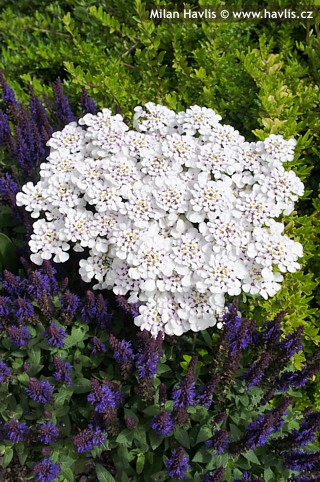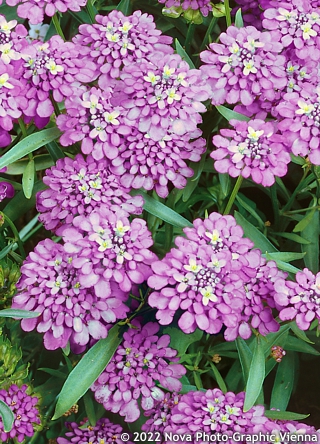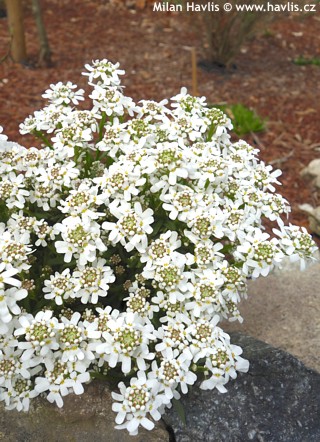Iberis 'PINK ICE'™ candytuft
Iberis
Candytuft is a low growing, evergreen perennial, often used as ground-covering plants. Pink Ice™ is a novelty hybrid from 2011, originating as a selection from amongst more iberis species in a trial bed. The inventor is Rodney W.Richards from Hereford, UK. Patented in 2013 under PP23,854.
Pink Ice™ is a lovely hybrid variety of candytuft with profusion of soft pink flowers atop 10-15 cm tall stems. They last for a long time and new buds appear along the stems when you trim the plant cutting away faded tops. This way the plant can bloom until midsummer. Leaves are deep green, narrowly ovate, only some 3cm long, evergreen.
Candytuft is cultivated in well-drained but moist soil of neutral to alkaline pH. It loves full sun. Like most mat-forming perennials this one, too, will benefit from light trimming after flowering. It will help it remain compact and bushy. Candytuft is commonly hardy to about -29°C to -34 °C (USDA zone 4-5).
Last update 20-05-2014


































